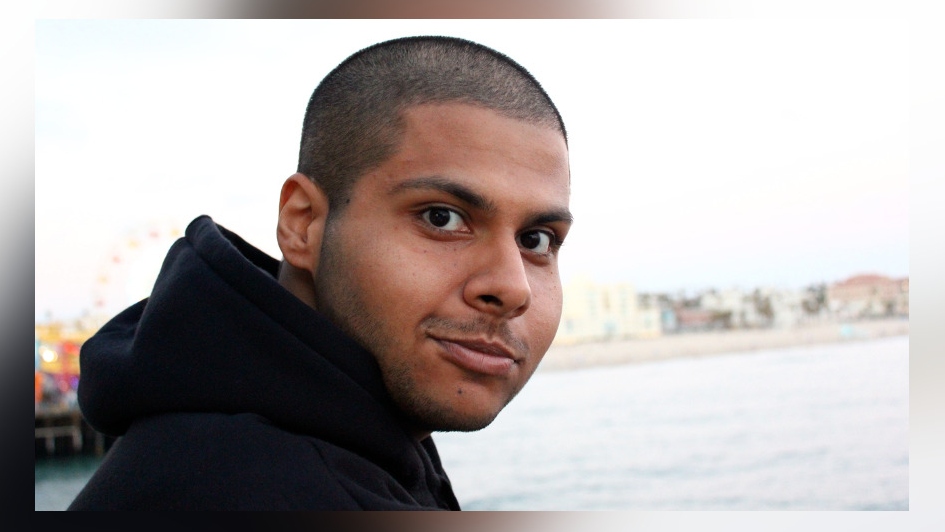
Image: Rudy Menon. Credit: The Rudy A Menon Foundation
It was in the middle of January 2013 that Rudy Menon first realised something was wrong.
The 25-year-old had returned to his home in Nottingham after spending Christmas with his parents Somnath and Vidhu and brother Arjun.
He was looking forward to seeing his friends and getting back to work, and most importantly his gym and training.
“Rudy was a handsome, strong young man and at 6’4” carried himself with poise,” his mother Vidhu says. “He had a very disciplined routine of training at the gym and was dedicated to his job at energy company E.ON, where he’d worked for the past three years.
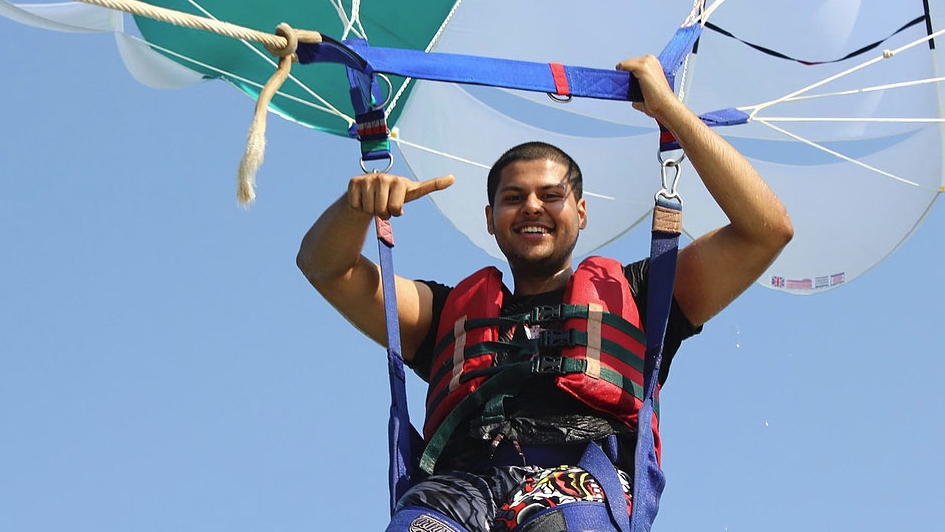
Image: Rudy Menon. Credit: The Rudy A Menon Foundation
“At the end of January Rudy noticed he was struggling to use the step master at the gym and was unable to lift the same weights with his right hand as he could with his left. Thinking that this was all due to the break he had taken from the gym during the Holiday period, he decided he needed to push himself harder.”
But by February Rudy’s symptoms were not improving and he was admitted to the Queen's Medical Centre in Nottingham. “At that point we all still had hope as he hadn’t been diagnosed with anything. There were so many neurological tests, but nothing came back positive,” Vidhu says, “But our strapping young lad was slowing down. He was getting worse.”
Rudy was then referred to the National Hospital of Neurology and Neurosurgery (NHNN) in London where a biopsy result showed a devastating diagnosis of Gliomatosis Cerebri.
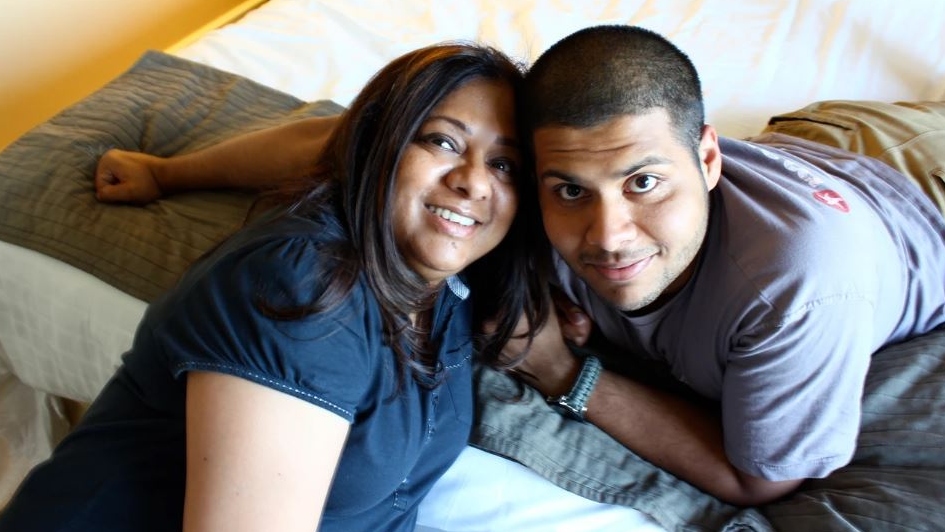
Image: Vidhu and Rudy. Credit:Vidhu Menon
A devastating diagnosis
The family learnt that Gliomatosis Cerebri was an extremely rare brain cancer. For Rudy, there were no treatments or clinical trials available that could offer a way to slow or stop the disease. This aggressive type of brain cancer typically affects children, teenagers and young adults. It grows and spreads rapidly and often becomes resistant to available treatments. The tumour originates from glial cells, which normally support and protect nerve cells in the brain.
“It does not manifest itself as a lump,” Vidhu explains, “but instead is like a spider's web of cancer threads that spread deep into the brain, making it impossible to remove surgically, or to treat with radiation.
“Rudy felt the first symptom at the end of January. Eighteen weeks later, and a few days after we were given the terrible news of his diagnosis, he slipped into unconsciousness.
“He left us nine days later, on the morning of June 4th, 2013, his 26th birthday.”
The family opened a book of memories and Vidhu points to one of his colleagues’ many entries as a tribute to her son.
‘I will never forget how much fun you brought to the workplace. Your tireless passion and enthusiasm for life was inspirational and impossible to ignore. You leave a legacy behind you with every person your life touched. The world will be a little worse off for losing you and you will be forever missed but never forgotten. In my memories you are telling me to push harder, achieve more and make every moment count. I promise I will in your memory.’
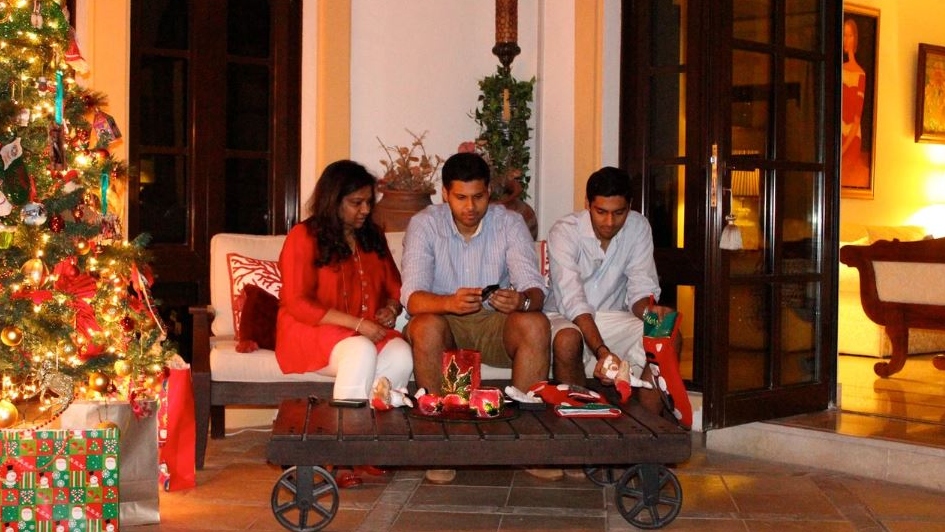
Image: Vidhu with Rudy and his brother Arjun. Credit: The Rudy A Menon Foundation
Remembering Rudy
“Each year the lead-up to June 4th is a struggle, mentally and emotionally,” Vidhu says. “It’s been ten long years and there’s a part of me that still hopes there will be a knock on the door, and he will walk through it.
“But we had a choice to make very early after Rudy left. Would our remembering of him on his birthday be a day of celebration, or would it be a day of mourning? We chose to celebrate him, and this continues to be a happy day because that’s when he came into our lives. He’s never far from our hearts or our thoughts.”
The first 'Remembering Rudy Walk' took place on June 8th, 2014, the closest Sunday to Rudy's birthday. The route started near Westminster Bridge and ended at Tower Bridge.
The Rudy A Menon Foundation, as it became known, was still in its early stages. Donations were collected on the walk and forwarded directly to The Institute of Cancer Research to support Professor Chris Jones and his team of researchers, whose work focuses on Gliomatosis Cerebri.
Since then, the Rudy A Menon Foundation has gone from strength to strength, and during last year’s Remembering Rudy – The Walk participants logged six million steps across the globe.
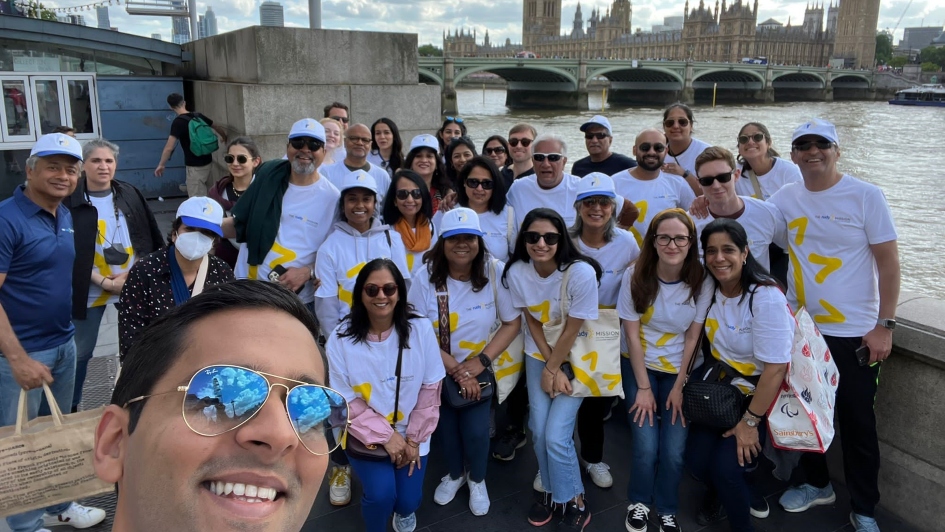
Image: Menon walk 2022. Credit: The Rudy A Menon Foundation
The Foundation’s mission is to raise money to fund research on Gliomatosis Cerebri and other rare and inoperable brain cancers, but also to create awareness about this disease.
Donate to The Rudy A Menon Foundation
Funding crucial research
“No state funding is allocated to conduct research on these diseases, Vidhu says, “and no family should have to lose a loved one for lack of research.”
The Menon family has already raised more than £400,000 towards much-needed research into brain tumours in children and young adults at the ICR.
This includes £150,000 which has supported a PhD student dedicated to improving the outlook for patients with Gliomatosis Cerebri.
Shauna Crampsie has been working in Professor Chris Jones’s team and, as she enters the final stage of her PhD, reports that because of the funding ‘we are close to building a new and unique understanding of this cancer’.
“We have been very lucky in having the support of the Rudy A Menon Foundation,” she says.
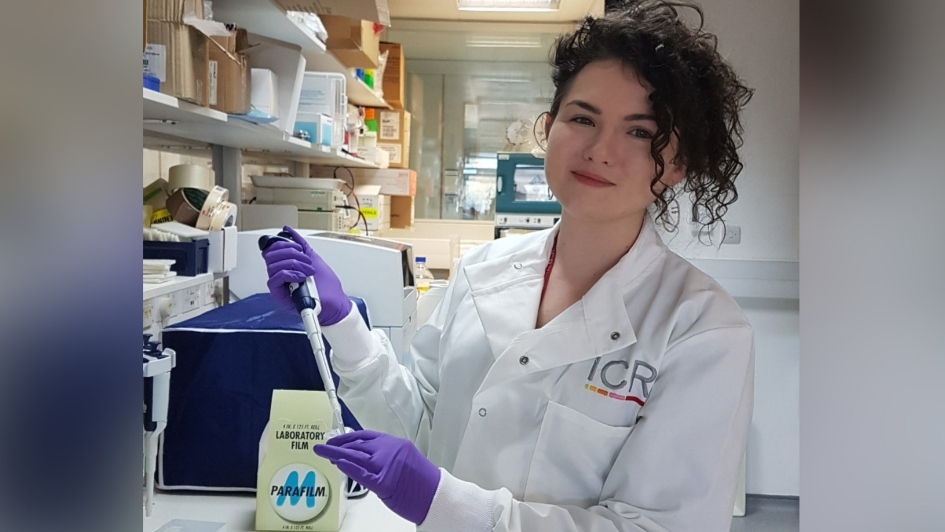
Image: Shauna Crampsie in the lab. Credit: The Institute of Cancer Research
Shauna has used cutting-edge advances in technology to look at Gliomatosis Cerebri in new and innovative ways. She has focused on analysing tumours at the single cell level to look at them in exquisite detail and learn more about the tumour microenvironment – including the different types of non-cancer cell that make up and support these tumours.
By discovering how tumour cells and supporting cells interact, researchers can exploit and disrupt these interactions, and potentially develop new treatments.
An international effort
Shauna’s project has also involved an international, collaborative effort, involving placements with Dr Mariella Filbin at the Dana-Faber Cancer Institute, Boston and Dr Mara Vinci at the Bambino Gesu Hospital, Rome.
Shauna says: “Throughout the course of this PhD, our three institutions and our collaborators across the world, have collected many samples from Gliomatosis cerebri patients in order to carry out the research sponsored by the Rudy A Menon foundation.
“At the ICR, we are developing models which will provide new ways to study and understand why Gliomatosis cerebri grows and spreads so quickly.
“Through tumour cells grown in the lab we have studied the way Gliomatosis Cerebri invades to see if we can detect a pattern that is representative of what we see in patients so we can better study the disease.”
Working with her colleagues in Boston, Shauna has also examined genes within the individual cells, allowing them to look deeper and understand how the cancer cells are ‘programmed’.
“This information will allow us to understand how Gliomatosis Cerebri is different from other gliomas found in children,” Shauna says, “but also to target weaknesses in these cells that will help develop treatments for this disease.”
Working closely with collaborators based at the Bambino Gesù Hospital in Rome, the team are also using the latest imaging technologies to understand how Gliomatosis Cerebri behaves.
“These latest techniques allow us to see a snapshot of the cancer within the brain tissue itself.
“It's exciting that our work is approaching the very final stages. We are building an understanding of Gliomatosis Cerebri that we never had before.
Supporting the next generation
“This type of cancer is chronically understudied, and it is an honour to be working on such a fantastic collaborative project that is uniting labs across the world. I am very proud that my studentship is supported by the Menon family, and I hope that this project that will enable us to shed some more light on this devastating disease.”
In 2022 the foundation pledged £165,000 for a second PhD position which will commence in Autumn 2023. The new student will build upon the strong foundations Shauna has worked so hard to build.
Vidhu says, “If we can help even one family, if we can just save one child. The pain of losing a child, a sibling, a friend is something we know, and we know what that pain does to a family. If we can save one Rudy, that’s our mission now and the reason we’re funding this vital research.”
We are making exciting advances against cancer, but to continue discovering smarter treatments, we need the very brightest cancer scientists and clinicians.
Help us train the next generation of PhD students like Shauna who will find tomorrow's cancer treatments.